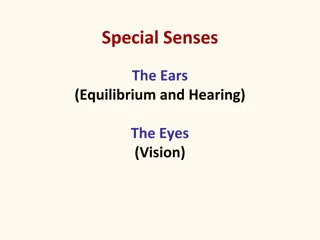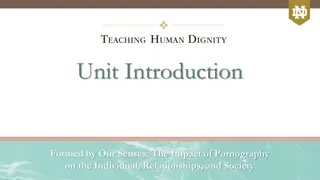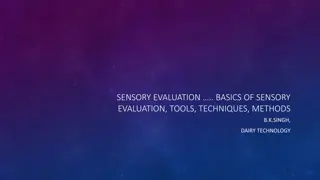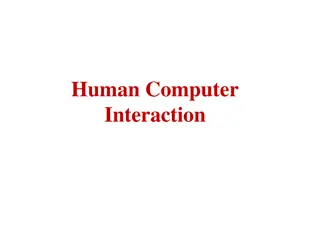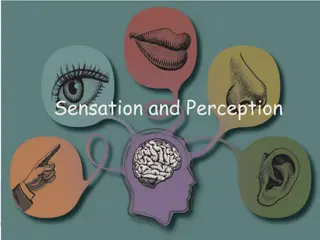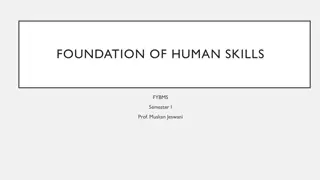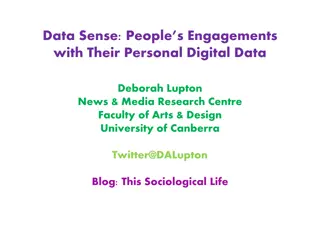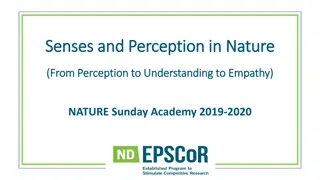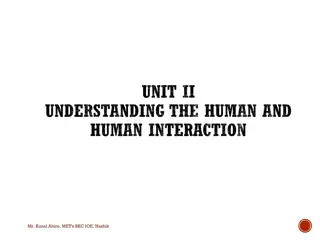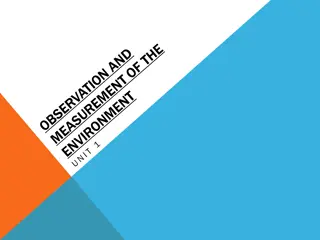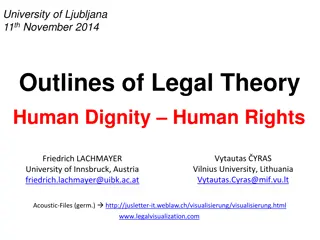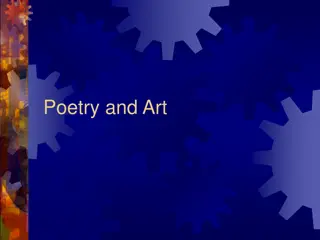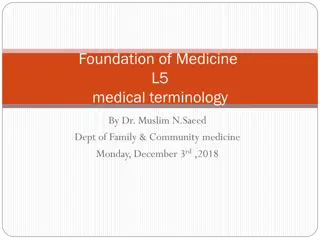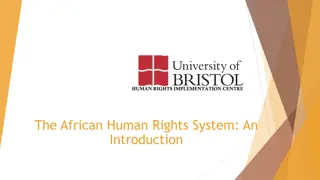Human Systems Integration in Technology Development
Human Systems Integration (HSI) is a crucial interdisciplinary process in systems engineering that integrates human factors to enhance system design, reduce costs, and optimize performance. This presentation by NASA experts delves into the benefits of HSI, the human readiness level metrics, and its
1 views • 23 slides
Approaches to the study of Human Rights
The Marxist perspective on human rights emphasizes social rights over individual rights, viewing the full realization of self within society. Marx connects bourgeois society with human rights, highlighting how exploitation under capitalism alienates individuals. In contrast, the Third World perspect
5 views • 19 slides
Exploring Special Senses: Ears, Eyes, and Sound Waves
Explore the fascinating world of special senses including equilibrium, hearing, vision, and the science behind sound waves. Delve into the anatomy of the ears, inner cochlea, and trochlea, as well as what gives eyes their color. Discover how sound frequency and amplitude affect pitch and volume, and
9 views • 25 slides
Understanding the Impact of Pornography: Lessons in Human Dignity
Delve into the profound impact of pornography on individuals, relationships, and society through a series of lessons focusing on human senses, sense perception, and Catholic anthropology. Explore popular cultural understandings of love, the role of the senses in perception, and the detrimental effec
6 views • 7 slides
Overview of Human Factors and Automotive Standards YouTube Series
This YouTube series, led by Paul Green from the University of Michigan, covers human factors and automotive standards. It includes topics like introduction to standards, core human factors standards, automotive human factors standards, human-computer interaction standards, and SAE vehicle standards.
7 views • 9 slides
Anthropology of the Senses: Holistic Understanding in Virtual Reality
Exploring the importance of a holistic approach in understanding virtual reality through the valorization of human experiences and the incorporation of multisensory signals. The discussion highlights the historical perspective on the role of senses beyond just vision, emphasizing the need to acknowl
4 views • 23 slides
Evolution of Human-Environment Relationship Through History
The evolution of human-environment relationships can be traced through four key stages - from hunting and food gathering in early human history to the modern era of science, technology, and industrialization. Each phase reflects changing attitudes towards nature and resource utilization, highlightin
0 views • 10 slides
Understanding Human Rights in Queensland Government Work
The Human Rights Act of 2019 in Queensland outlines protected rights such as equality, freedom of expression, and fair trial. All public service employees must adhere to these rights, ensuring decisions and actions respect human rights. This act applies to everyone in the Queensland Government, with
2 views • 13 slides
Understanding the Basic Concept of Human Rights in Modern Jurisprudence
Human rights are natural and inalienable, essential for human life, based on universal principles. The concept of human rights is both simple and complex, requiring societal development and political will for implementation. Rooted in natural law theory, human rights have evolved from natural law to
1 views • 24 slides
Understanding Sensory Evaluation in Food Science
Sensory evaluation in food science involves analyzing human responses to the characteristics of food and beverages using the senses of sight, smell, taste, touch, and hearing. This scientific discipline aims to elicit, measure, analyze, and interpret reactions to the sensory attributes of food produ
0 views • 32 slides
Understanding Human Perception and Interaction in HCI
Human-Computer Interaction (HCI) involves the study of how humans interact with computers using various input and output channels such as vision, hearing, touch, and memory. Vision is crucial as it is the primary source of information, while hearing and touch play significant roles in conveying info
1 views • 12 slides
Understanding Media Ecology: Impact of Communication Technology
Media ecology is a theoretical concept analyzing the influence of media and communication technology on human culture. Neil Postman, a prominent figure in the field, delves into how communication media affect human perception, understanding, and values. This study views media as environments shaping
4 views • 23 slides
Understanding Sensation and Perception in Psychology
Explore the fascinating world of sensation and perception in psychology, where we delve into how our senses interact with stimuli to create our conscious experiences. Sensation involves the activation of our sense organs by external stimuli, while perception refers to the interpretation of those sti
3 views • 19 slides
Understanding Human Nature and Individual Differences in Foundation of Human Skills
Explore the foundational concepts of human behavior, individual differences, and organizational culture in the study of human skills. Delve into topics such as human nature, personality, attitudes, intelligence, and learning in Prof. Muskan Jeswani's course. Understand the significance of inter- and
0 views • 11 slides
Exploring Mindfulness and Its Benefits through Practices
Mindfulness involves paying full attention to the present moment, recognizing emotions, and using the five senses to enhance awareness. It helps in making better choices, reducing stress, and promoting overall well-being. Practices such as breathing exercises, body scans, and focusing on the five se
0 views • 15 slides
Exploring Crustacean Senses and Organs: A Field Trip to Alki Beach
Join us on a field trip to Alki Beach where we will learn about crustacean senses, including mechanoreception, chemoreception, and photoreception. Discover how crustaceans perceive their environment through their eyes, setae, and statocysts. Engage in hands-on activities to explore these sensory mec
0 views • 18 slides
12th Grade English Preparation for University Entrance Exam - Part 22
The nervous system, the most complex of all body systems, is a detailed network of sensory cells transmitting signals throughout the body. This system uses chemical messengers to interpret senses like touch, taste, smell, hearing, and vision. Modern cameras, based on similar principles as the human
0 views • 16 slides
Exploring Human-Data Interactions in Personal Digital Data Engagements
Delve into the intricate world of human-data interactions in the realm of personal digital data engagements. Investigate how individuals use and perceive their digital data, exploring the intersections of technology, data usage, and human life. Discover the vitality of digital data in shaping our so
0 views • 19 slides
Understanding Polysemy and Homonymy in Lexical Ambiguity
In lexical ambiguity, polysemy refers to one word having multiple related senses, while homonymy involves different words that sound the same but have unrelated meanings. Distinguishing between polysemy and homonymy can be challenging, but certain guidelines can help differentiate them based on shar
0 views • 27 slides
Understanding Sensory Perception in Nature
Sensory perception in nature explores the diverse ways organisms detect stimuli, encompassing traditional senses like sight and touch, as well as lesser-known senses such as thermoception and proprioception. Other organisms, including animals and plants, exhibit unique sensory abilities that aid in
0 views • 14 slides
Evolution of Human Rights: From Ancient Times to Modern Era
Throughout history, ideas of rights and liberty have evolved, leading to the recognition of universal human rights in the modern sense. The concept of human rights can be traced back to significant historical events such as the English Bill of Rights, the Virginia Declaration of 1776, and the French
0 views • 7 slides
Engaging Descriptive Techniques: Sensory Language Exploration
Explore the importance of sensory language in descriptive writing, going beyond visual descriptions to engage all five senses. Understand how incorporating senses like smell, taste, touch, and sound enriches storytelling, creating a more immersive experience for readers. Learn how sensory details ca
0 views • 5 slides
Exploring the Senses Through Poetry: A Day in Captivating Verses
Immerse yourself in the sensory journey of a day beautifully described through poetry, capturing the sights, sounds, smells, tastes, and touches that shape our daily experiences. Delve into the nuances of the environment, from the singing of boys to the crunching of apples, and engage your senses th
0 views • 14 slides
Exploring the Sense of Touch: A Journey Through Our Senses
Our sense of touch plays a crucial role in how we perceive the world around us. Through our skin, we feel sensations like pressure, texture, and temperature, allowing us to interact with our environment. This interactive journey delves into the concept of touch as one of our five senses, exploring i
0 views • 7 slides
The Link Between Democracy and Human Rights
The core of democracy lies in promoting equal human worth and self-determination. There is a strong connection between human rights, democracy, good governance, and development. Democracy allows people to participate in decision-making, ensuring their views are heard. It upholds freedom, equality, f
0 views • 15 slides
Understanding Human Interaction in Interactive Systems
In the study of human factors in interactive systems, understanding the capabilities and limitations of users is crucial. This involves examining human input-output channels, memory, thinking processes, and problem-solving abilities. Humans interact with technology through senses like vision, hearin
0 views • 110 slides
Enhancing Observational Skills through the 5 Senses and Devices
Explore how the 5 senses - sight, touch, hearing, taste, and smell - interact with our environment and how observations can be enhanced using specialized devices beyond human senses. Discover examples like a graduated cylinder, microscope, spring scale, wind vane, and compass that extend observation
0 views • 146 slides
Understanding Cattle Handling and Restraint Techniques
Explore the importance of understanding cattle senses and behaviors for effective handling and restraint. Learn about domestication history, handling techniques, sensory perception, and more to ensure safe interactions with cattle. Gain insights into vision, hearing, and other senses crucial for pro
0 views • 30 slides
Understanding Senses: Vision, Taste, Olfaction, and Audition
Explore the intricacies of human senses such as vision, taste, smell, and hearing. Delve into topics like sharpness of vision, loss of taste and smell, and the role of retinal neurons and amacrine cells. Enhance your understanding of sensory perception and the complexities of the human sensory syste
0 views • 176 slides
The Significance of Human Rights in the Modern World
Human rights are fundamental rights that belong to all individuals, are inalienable, indivisible, interconnected, and should be respected without prejudice. The Universal Declaration of Human Rights, adopted in 1948 after WWII by the United Nations, is a crucial milestone document emphasizing human
0 views • 5 slides
Understanding Word Sense Disambiguation in Computational Lexical Semantics
Word Sense Disambiguation (WSD) is a crucial task in Computational Lexical Semantics, aiming to determine the correct sense of a word in context from a fixed inventory of potential word senses. This process involves various techniques such as supervised machine learning, unsupervised methods, thesau
0 views • 67 slides
Enhancing Transparency in Human Rights Performance Measurement
This information focuses on initiatives like the Human Rights Measurement Initiative (HRMI) that aim to provide new data for researching and advocating human rights issues globally. The HRMI project, founded in 2015, collaborates with various stakeholders and is funded by philanthropic grants. It em
0 views • 19 slides
Understanding Pathos and Pathic Knowledge in Philosophy: Insights from Norm Friesen and Waldenfels
Explore the concepts of pathos and pathic knowledge as discussed by philosophers such as Norm Friesen and B. Waldenfels. Pathos, originating from Greek, refers to the quality that evokes pity or sorrow. Waldenfels delves deeper into the notion of pathos, linking it to experiences that provoke senses
0 views • 19 slides
Outlines of Legal Theory Human Dignity – Human Rights
Explore the significance of human dignity and human rights within legal theory, reflecting on their cultural, moral, and legal implications. Delve into the essence of human rights as an essential cultural achievement, contrasting the protection and denial of human images within different legal conte
0 views • 10 slides
The Vibrant World of Colors in Poetry and Art
Explore the enchanting relationship between colors, poetry, and art, where painting eloquently speaks in silence and each color vibrates with unique sensations. Dive into the intriguing connections of colors with human senses, emotions, and meanings, unveiling a symphony of visual chords and symphon
0 views • 18 slides
Major Body Systems and Cavities in Human Anatomy
Understanding the major body systems, including skeletal, muscular, cardiovascular, lymphatic, immune, respiratory, digestive, urinary, nervous, endocrine, reproductive, integumentary, and special senses systems, as well as the dorsal cavity comprised of the cranial and spinal cavities. Each system
0 views • 20 slides
Understanding Human Rights: Module 1 Overview
This module serves as an introduction to human rights principles, instruments, and monitoring mechanisms. It covers the definition of human rights, the Universal Declaration on Human Rights, key principles, and state obligations. Human rights are universal legal guarantees that protect individuals a
0 views • 21 slides
International Focus Programme: Human Rights and Technology Advocacy
The International Focus Programme (IFP) is actively engaging in advocating human rights and technology through various initiatives and campaigns. This includes organizing online meetings, webinars, surveys, and events to raise awareness about freedom of expression online, artificial intelligence, an
0 views • 8 slides
Overview of the African Human Rights System
The African Human Rights System encompasses various key elements such as the Organisation of African Unity, African Charter on Human and Peoples' Rights, African Court on Human and Peoples' Rights, African Union, and additional human rights-related treaties and protocols. This system aims to protect
0 views • 19 slides
Human Rights Processes in Canada: Legislation and Protections Explained
Understand the human rights processes in Canada, including the two general sources of human rights, human rights legislation, federal vs. provincial/territorial laws, and the specifics of the BC Human Rights Code. Learn about direct and indirect discrimination, duty to accommodate, and the areas pro
0 views • 12 slides


